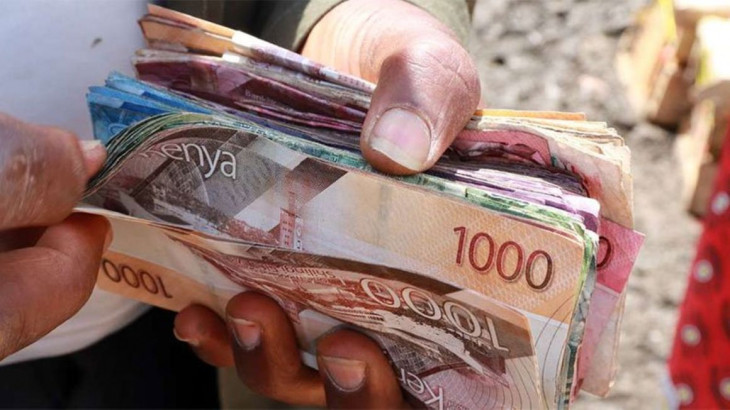Watamu hoteliers project business boom this year

While the hospitality industry players agree that it would be a long time until full business recovery, they see this year as providing a vast improvement over the past one. They say the industry will shift its course to innovation, recovery and renewal and as that happens there will be a step up in travel.
Jasmine Atieno @sparkleMIne
Known as ‘The Home of Sweet People’, Watamu, a small beach village in Kilifi county about 120 kilometers north of Mombasa town has grown to become dependent purely on the tourism industry for survival.
Always fully booked from December through to the Easter holidays in April, especially by Italian tourists, the beach town has suffered a great deal since the outbreak of Covid-19 early last year.
Most holiday makers and investors of foreign descents were repatriated back to their countries, leaving hotels in the area and entire region ghostly and thirsting for revival.
While most of the hotels remained closed for most of the year, a few hotels reopened in the hope of attracting local holiday makers and also sustain their employees who had gone for months without an income.
Jacaranda Beach Resort in Watamu for instance, would normally have over 500 guests during the festive seasons witnessed a drastic drop last year to less than 100.
The chairman of the hotel, Pasquale Tirito says he reopened the hotel on December 11, after a 10-month closure, mostly to provide a source of income for his employees.
But trying to revive the business, he says, has been a hard nut to crack. “To run this hotel is very expensive, esppecially after factoring in all the requirements of safe reopening by the Ministry of Health.
You can’t just open for one or two visitors, because still everything will need to run as usual,” he explains.
My plan right now is purely set for December 2021, in spite of the start of the electioneering period next year, which may affect marketing to international tourists,” he shares.
While business remains bad at the moment, the business owner remains positive that things will get better with the passing of the pandemic.
Focus on locals
John Guyo has been the resident manager at Twiga Beach resort for seven years now and in all his experience at the facility, business has never hit a harder rock.
The resort, which is under the management of Uvet hotel management company, an international company, which also owns jets that fly international tourists in and out of the country. At the moment as he shares, they are not flying to Kenya.
“Italian tourism is seasonal. When the season is high, they open and when it’s low the hotels close. In December its entirely foreigners who fill up the hotel and we barely have any space.
But now we are struggling to get visitors. The pandemic has camped in Italy after the outbreak in Wuhan, and currently the nation is in a bad state,” says Guyo, noting that they had to lower their hotel rates to Sh10,000, full board basis during the festive season in an attempt to attract local tourists.
“Before, we would give all the rooms to international tourists through a tour company. But we are changing the strategy now, because we have to learn how to fly without perching, changing with the current situations,” he adds.
He is also concerned that while the county is completely dependent on tourism, the county government has not invested on tourism.
Almost all hotel workers have been home since the pandemic struck, and the county has made no plans at all to safeguard the locals through the lockdown.
“We are yet to see any efforts from the county heads, unfortunately. This is definitely the worst that I have witnessed throughout my years working in the hotel industry, but I am optimistic about 2021,” he asserts.
“This year will be booming! Italians are used to making merry and after being stuck indoors for that long, especially during the winter season, they will be eager to get away, even for longer once the situation has been contained,” he adds.
Hotel owner at the coast, Hasnain Noorani agrees that the hospitality industry has endured tremendous shifts and disruptions over this year, forcing businesses to rapidly implement innovative trends and partnerships that will reshape the future
He says if hoteliers do have the capital to invest in technology enhancements post Covid-19, it would help guests to feel more confident in their hotel stay.
A recent Booking.com’s Future of Travel survey for 2020 indicates that 63 per cent of travellers want hotels to ‘use the latest tech’ to ensure safety.
And 64 per cent of the travellers feel tech will be important in controlling health risks.
“From developments in decision-making and purchasing power, one of the main keys to success is to consciously prepare and adapt.
The new 2021 hospitality trends are considered more evolutionary than revolutionary.
Among the predictions, include an increased focus on customer service following a record dip in occupancy.
Many brands are extending loyalty programmes through 2021 and maintaining communication with brand loyal customers,” Noorani says.
Extra revenue
He says as days go by in which some hotels sit vacant, money is being burned.
This unfortunate byproduct of Covid-19 has required savvy hoteliers to discover creative ways to repurpose these now underused spaces.
“Hoteliers are now focused on gaining extra revenue from guests who want month to month apartment-like units.
Because hotels are set up with high-speed internet and a work-friendly desk, they have also made a fairly easy transition to co-working spaces and business offices,” he offers.
Hoteliers are expected to continue this alternative use trend in 2021 if it fits into their broader business and performance strategies. We also anticipate that the hotels with restaurants will continue to implement dramatic changes in the way they serve their customers.
In addition to being a “contactless” food and beverage service facility, drinks and foods will be available in three distinctly different ways: outdoor dining, indoor dining with distancing and “grab and go.”
Further, Noorani says as guests ease into the comforts of dining at home more frequently, it will be key for hoteliers to tap into this market.
The opportunity to include packaged liquor sales like a bottle of wine, beer, or cocktail components with ‘to go’ orders are an easy revenue enhancement and a convenience to guest. Hotels will continue to pursue this where jurisdictions allow.
Also the ability to consistently deliver a seamless process and quality product will become an expectation.















